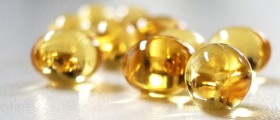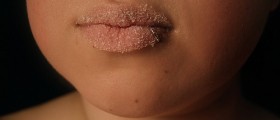
Maintaining the skin’s elasticity is a great concern for many people, especially women. Unfortunately, no matter how many cosmetic products like creams and lotions a person uses, human skin is bound to become less elastic. As the skin ages, the skin becomes less elastic and smooth, and gradually becomes soggy and rough. Aging, of course, cannot be reversed or stopped, but there are things that can be done to maintain the skin’s elasticity for longer.
Exercise
Muscle building is a very important factor for keeping the skin nice and elastic, although it may not seem very logical. Skin is a living organ which covers the muscles, which again, cover the bones. As a muscle shrinks, due to insufficient use, it immediately shows on the skin. Many wrinkles on the face are result of only one muscle group being used, while the others are relaxed. By engaging all the muscle groups on both face and the body, the muscles will grow and develop and it will result in even, tones and elastic skin.
Movement in general is very important for the skin and its elasticity, and for many reasons. One of them is that moving increases blood flow, which carries more nutrients to the skin and carries toxins away from it. Movement also balances hormones that have an effect on the skin. Moderate exposure to sun during outdoor activities increases the levels of vitamin D, a vitamin that is very important for the skin.
Quitting smoking
Smoking is considered to be one of the major factors that contribute to loss of elasticity of the skin. Small blood vessels in the skin shrink due to smoking and it results in insufficient supply of oxygen and nutrients to the skin. Cigarettes also contain toxins which damage the skin’s structure, making it less elastic. In addition, suction movement causes wrinkles around the eyes, while squinting to avoid the smoke in the eyes leads to fine lines around the eyes.
Avoiding external damage
Human skin can suffer a lot from external negative factors. This includes pollution, sun damage, but also cosmetic products that contain many artificial ingredients. Harsh soaps, perfumes, too much make up, chlorinated water, hot water, extreme temperatures all damage the skin, cause dryness, irritation and clogging of the pores. As a result, the skin becomes less elastic.
Dietary habits
It is very important to control carbohydrate metabolism. In this process the excess glucose, which means sugar, binds with proteins and it results in hardening of the walls of blood vessels. It becomes visible especially in the areas with thinner skin, like eyelids, around the eyes and back of the hands. Blood sugars need to be stable and it can be obtained by maintaining a proper ratio of proteins, fats and carbohydrates in the diet.
Foods that are most recommended for maintaining the skin’s elasticity are live foods. This means fresh, non-processed fruit and vegetables, herbs and spices. Water is also very important. Skin that is regularly hydrated from the inside, and not just through moisturizing creams, has a much bigger chance of staying elastic for longer.

















Your thoughts on this
Loading...